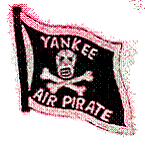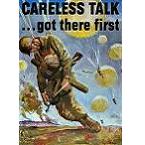
Atlantic Ocean question...
Moderators: wdolson, MOD_War-in-the-Pacific-Admirals-Edition
- Footslogger
- Posts: 1250
- Joined: Wed Oct 08, 2008 11:46 pm
- Location: Washington USA
Atlantic Ocean question...
Did the convoys keep the Russians in the war? I saw one clip that of the few ships that did make it Russia, the the Russians were ungreatful. 

- YankeeAirRat
- Posts: 633
- Joined: Wed Jun 22, 2005 4:59 am
RE: Atlantic Ocean question...
Well the Russians were getting convoys from from both the Atlantic Side and Pacific side of their nation. The biggest advantage that the Arctic convoys did was tied down the German Surface force in and around the Norwegian Seas. Along with the loss of U-boats. Meanwhile Russian cargo ships would arrive in San Fran, Seattle, Long Beach, load up, and steam back through an active combat zone to the their Pacific Ports. Drop the goods and via the Trans-Siberia Rail line go to Europe with it. The other minor way to that they got supplied was via Iran into the Caucasus region. Yes the convoys did keep the Soviets in the war simply cause it took a while for most of the machinery that went to the other side of the Urals to start working at full steam.
Take my word for it. You never want to be involved in an “International Incident”.
RE: Atlantic Ocean question...
ORIGINAL: Footslogger
Did the convoys keep the Russians in the war? I saw one clip that of the few ships that did make it Russia, the the Russians were ungreatful.
Since the Soviet Union was shouldering nearly all the European land fighting in 1941 and '42, they probably figured the Allies should be the grateful ones. It's all in one's perspective I guess.
RE: Atlantic Ocean question...
Allied contributed to Soviet war effort mainly with non-combat material (thousands of Trucks, food, clothing, and such stuff) together with some tanks and aircrafts. This allowed that Soviet industry could turn exclusively on war production of weapons.
I think there was only one direct-combat weapon delivered in significant numbers: P-39 Airacobra and P-63 Kingcobra.
I think there was only one direct-combat weapon delivered in significant numbers: P-39 Airacobra and P-63 Kingcobra.

RE: Atlantic Ocean question...
The biggest lifeline to the USSR was via Persia.
http://www.history.army.mil/books/wwii/ ... /index.htm
Maybe it was the
"Soviet Far East" routes that provided most!!
http://www.history.army.mil/books/wwii/ ... /index.htm
Maybe it was the
"Soviet Far East" routes that provided most!!
Interdum feror cupidine partium magnarum Europae vincendarum
- YankeeAirRat
- Posts: 633
- Joined: Wed Jun 22, 2005 4:59 am
RE: Atlantic Ocean question...
Don't forget the A-20. Over 2/3's of the A-20B's built were delievered to the Soviets, along with a significate portion of the G and H models.ORIGINAL: Barb
Allied contributed to Soviet war effort mainly with non-combat material (thousands of Trucks, food, clothing, and such stuff) together with some tanks and aircrafts. This allowed that Soviet industry could turn exclusively on war production of weapons.
I think there was only one direct-combat weapon delivered in significant numbers: P-39 Airacobra and P-63 Kingcobra.
Take my word for it. You never want to be involved in an “International Incident”.
RE: Atlantic Ocean question...
Some massive contributions by Lend-Lease to SU were:
- locomotives & rail cars, 90% of used USSR (they changed their production to tanks etc. when getting almost all of these from US)
- aircraft aluminum, 60% of used in USSR
- explosives materiel, 60% of used USSR
- most of the trucks, don't remember the %, but was massive too.
Without US and Allied Lend-Lease, Red Army would been had-pressed to get enough a/c, artillery shells, transportation etc. not to mention they'd have had to direct lot of production of tanks and artillery etc. back to those. Not to mention Red Army would have had 1942 mobility still in 1944 without all those trucks & locomotives
- locomotives & rail cars, 90% of used USSR (they changed their production to tanks etc. when getting almost all of these from US)
- aircraft aluminum, 60% of used in USSR
- explosives materiel, 60% of used USSR
- most of the trucks, don't remember the %, but was massive too.
Without US and Allied Lend-Lease, Red Army would been had-pressed to get enough a/c, artillery shells, transportation etc. not to mention they'd have had to direct lot of production of tanks and artillery etc. back to those. Not to mention Red Army would have had 1942 mobility still in 1944 without all those trucks & locomotives
"To meaningless French Idealism, Liberty, Fraternity and Equality...we answer with German Realism, Infantry, Cavalry and Artillery" -Prince von Bülov, 1870-


- Pascal_slith
- Posts: 1657
- Joined: Wed Aug 20, 2003 2:39 am
- Location: In Arizona now!
RE: Atlantic Ocean question...
ORIGINAL: JeffK
The biggest lifeline to the USSR was via Persia.
http://www.history.army.mil/books/wwii/ ... /index.htm
Maybe it was the
"Soviet Far East" routes that provided most!!
Albert Weeks would contend that the biggest lifeline was across the Pacific to Vladivostok.
See: http://www.amazon.com/Russias-Life-Save ... 442&sr=8-3
So much WitP and so little time to play.... 


RE: Atlantic Ocean question...
Warspite1ORIGINAL: Pascal
ORIGINAL: JeffK
The biggest lifeline to the USSR was via Persia.
http://www.history.army.mil/books/wwii/ ... /index.htm
Maybe it was the
"Soviet Far East" routes that provided most!!
Albert Weeks would contend that the biggest lifeline was across the Pacific to Vladivostok.
See: http://www.amazon.com/Russias-Life-Save ... 442&sr=8-3
In the book Sacrifice For Stalin, the figures quoted are:
25% Arctic
25% Persia
50% Vladivostok
by the end of the war. No doubt the percentages varied at different times.
Now Maitland, now's your time!
Duke of Wellington to 1st Guards Brigade - Waterloo 18 June 1815
Duke of Wellington to 1st Guards Brigade - Waterloo 18 June 1815
- Historiker
- Posts: 4742
- Joined: Wed Jul 04, 2007 8:11 pm
- Location: Deutschland
RE: Atlantic Ocean question...
And don't forget the piano that was delivered! Without it, russia would've been lost!ORIGINAL: YankeeAirRat
Don't forget the A-20. Over 2/3's of the A-20B's built were delievered to the Soviets, along with a significate portion of the G and H models.ORIGINAL: Barb
Allied contributed to Soviet war effort mainly with non-combat material (thousands of Trucks, food, clothing, and such stuff) together with some tanks and aircrafts. This allowed that Soviet industry could turn exclusively on war production of weapons.
I think there was only one direct-combat weapon delivered in significant numbers: P-39 Airacobra and P-63 Kingcobra.
Without any doubt: I am the spawn of evil - and the Bavarian Beer Monster (BBM)!
There's only one bad word and that's taxes. If any other word is good enough for sailors; it's good enough for you. - Ron Swanson
There's only one bad word and that's taxes. If any other word is good enough for sailors; it's good enough for you. - Ron Swanson
- topeverest
- Posts: 3380
- Joined: Wed Oct 17, 2007 1:47 am
- Location: Houston, TX - USA
RE: Atlantic Ocean question...
Two large impacts were the tieing down of the German fleet elements, and the supply itself. here are a few totals that should be fairly accurate.
Routes supplies shipped by
route, Amount shipped, Arrived/lost
North Russia, 3,964,000 tons, 93%/7%
Persian Gulf, 4,160,000 tons, 96%/4%
Black Sea, 681,000 tons, 99%/1%
Far East, 8,244,000 tons, 99%/1%
Soviet Artic, 452,000 tons 100%/0%
Totals
Amount shipped 17,501,000 tons
Arrived in USSR 16,587,000 tons
Lost 488,000 tons
This includes the bulk of airplanes, trucks, tanks, and a large numbers of ships...for example, Russia used much of the Atlantic Arctic supply early to hold Leningrad. Without it, there was a limited chance defenses could have been successful.
Routes supplies shipped by
route, Amount shipped, Arrived/lost
North Russia, 3,964,000 tons, 93%/7%
Persian Gulf, 4,160,000 tons, 96%/4%
Black Sea, 681,000 tons, 99%/1%
Far East, 8,244,000 tons, 99%/1%
Soviet Artic, 452,000 tons 100%/0%
Totals
Amount shipped 17,501,000 tons
Arrived in USSR 16,587,000 tons
Lost 488,000 tons
This includes the bulk of airplanes, trucks, tanks, and a large numbers of ships...for example, Russia used much of the Atlantic Arctic supply early to hold Leningrad. Without it, there was a limited chance defenses could have been successful.
Andy M
RE: Atlantic Ocean question...
Warspite1ORIGINAL: topeverest
Two large impacts were the tieing down of the German fleet elements, and the supply itself. here are a few totals that should be fairly accurate.
Routes supplies shipped by
route, Amount shipped, Arrived/lost
North Russia, 3,964,000 tons, 93%/7%
Persian Gulf, 4,160,000 tons, 96%/4%
Black Sea, 681,000 tons, 99%/1%
Far East, 8,244,000 tons, 99%/1%
Soviet Artic, 452,000 tons 100%/0%
Totals
Amount shipped 17,501,000 tons
Arrived in USSR 16,587,000 tons
Lost 488,000 tons
This includes the bulk of airplanes, trucks, tanks, and a large numbers of ships...for example, Russia used much of the Atlantic Arctic supply early to hold Leningrad. Without it, there was a limited chance defenses could have been successful.
Interesting stats on the delivered / undelivered front, although I think the tieing down of the German fleet is the wrong conclusion. It was the Royal Navy that had its Home Fleet tied down thanks to the German "fleet-in-being" rather than the other way around. With hindsight the RN probably kept too many units at Scapa later in the war to guard against the possibility of Tirpitz making a sortie.
Re the earlier few ships comment, 811 ships made the journey to the Soviet Union in total and 58 were sunk. 717 ships sailed back to the UK from the Soviet Union and 29 of these were sunk.
As to whether the Soviets were grateful, no I do not think they were judging by the poor reception and facilities given/granted to the allied sailors that arrived in the Soviet Union. But I think Torplexed is right - it depends upon your perspective. For the Soviets, who were bearing the brunt of the land war against the Germans, no Stalin was not grateful because he mis-trusted the western allies and thought they were not doing enough to help.
To the brave sailors of the merchant marine and Allied navies that had to endure the hardships of the Arctic weather and the knowledge that if their ship was sunk they could expect a much reduced chance of survival than normal; to the British who were sending supplies and equipment to the Soviets that could be used in the desert or the Far East, then that ingratitude - in modern parlance - sucks.
Now Maitland, now's your time!
Duke of Wellington to 1st Guards Brigade - Waterloo 18 June 1815
Duke of Wellington to 1st Guards Brigade - Waterloo 18 June 1815
RE: Atlantic Ocean question...
I don't have any of my reference books at hand, but I recall that the two big impact items were Trucks and Radios.
IIRC, the radio sets were in widespread use into the early 60's too.
Regards,
Feltan
IIRC, the radio sets were in widespread use into the early 60's too.
Regards,
Feltan
RE: Atlantic Ocean question...
As a Russian, who was born in Leningrad, USSR I can assure you, that the Soviets were indeed grateful for LL aid. Especially those Soviet citizens starving in Leningrad during the 900 day siege who started receiving American bacon and canned food arriving via the Road of Life that went across Lagoda Lake. The Sovietpilots who preferred the P-39s greatly appreciated their aircraft and if you read accounts of those who operated Sherman tanks, especially in the Battle for Vienna, you will see many Soviet tankists appreciated the aid.
The Soviet Union produced a lot and suffered a lot in the war. It is true that our history books focus much on the Soviet contributions, but growing up attending Soviet schools, we were taught how important the Lend Lease aid was to our war effort, especially in helping my city feed it's citizens until the siege was finally lifted.
The Soviet Union produced a lot and suffered a lot in the war. It is true that our history books focus much on the Soviet contributions, but growing up attending Soviet schools, we were taught how important the Lend Lease aid was to our war effort, especially in helping my city feed it's citizens until the siege was finally lifted.
RE: Atlantic Ocean question...
Looking back on the cold war, and the legacy of suffering still felt today everywhere that the USSR had influence, I wonder if the world would have been better off if the allies had simply let Russia wither on the vine and fall early in the war.
The war would have lasted longer, but would still have ultimately been winnable yes? But the future costs of a brutal Russian hegemony might have been averted.
The war would have lasted longer, but would still have ultimately been winnable yes? But the future costs of a brutal Russian hegemony might have been averted.
RE: Atlantic Ocean question...
Ahh yes we, the Soviets were only able to defeat the Nazi super soldiers because of Lend Lease and let me guess, the winter?
It was the Western Allies who simply allowed the Soviet Union to hang on, I forgot.
It was the Western Allies who simply allowed the Soviet Union to hang on, I forgot.
RE: Atlantic Ocean question...
The Lend Lease equpiment was very important in the late 1944 and 1945 operations in Poland, Hungary, Austria, Germany, but holding on during the first year, other than the extremely important foodstuffs and clothing sent to Leningrad starting around March 42, wasn't a factor. It was horrible German logistics and rapid conscription of an incredibly large RKKA that stopped the German advance.
RE: Atlantic Ocean question...
RE: Atlantic Ocean question...
The War was a team effort, this whole "Russians wouldn't have won without our help" garbage on Western forums is as ridiculous to me as "We the Great Soviet Union won the entire war by ourselves, if not for the Yankees dropping the atom bombs we would have taken Tokyo by September" that are all over the RUnet.
It hasn't happened in this thread, but usually I get some person who has never been to Russia or never attended a Soviet school telling me what I was taught as a student...
Salute! to everybody that won that terrible war...
It hasn't happened in this thread, but usually I get some person who has never been to Russia or never attended a Soviet school telling me what I was taught as a student...
Salute! to everybody that won that terrible war...















